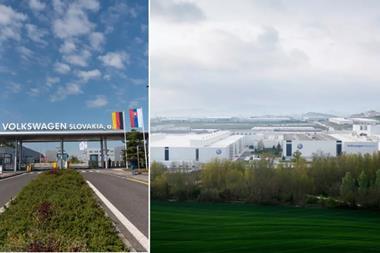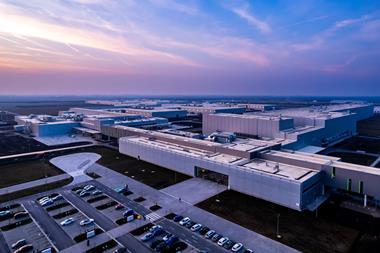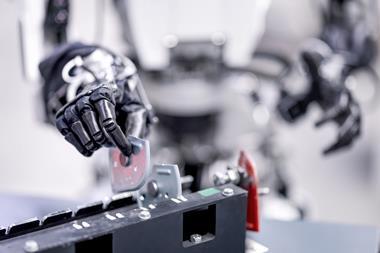The AMS South America conference, in São Paulo on October 29-30, will hear experts discuss tough challenges, says Simon Duval Smith.
Vehicles sales continue to grow at a healthy rate in South America and this has spurred the building of new manufacturing and assembly plants by both established players and new entrants to the market. As the Brazilian government continues to increase taxes and import duties, so OEMs continue to expand their in-country manufacturing and purchasing, seeking the tax relief afforded by making and sourcing more of their products in the region.
 New manufacturers, particularly from China, are continuing to see South America as an attractive market, with rising affluence and a certain amount of pent-up demand for better-equipped small vehicles that is not being fully satisfied by OEMs already established in the region.
New manufacturers, particularly from China, are continuing to see South America as an attractive market, with rising affluence and a certain amount of pent-up demand for better-equipped small vehicles that is not being fully satisfied by OEMs already established in the region.
Recent changes to Brazil's import tariff structure have caused the shift of transplants into the country from neighbouring countries. This has put further pressure on the labour and materials market.
Local tier suppliers are under growing pressure from their OEM customers to improve quality, delivery and cost, to help raise the local content of vehicles to satisfy the strict taxation requirements on in-country content percentages. Skilled labour, from operators to engineers, is still in short supply at OEMs’ production facilities and throughout the supply chain.
These issues and many more will be addressed at AMS South America 2013 as machinery and service providers showcase and demonstrate their offerings, with exclusive presentations by senior manufacturing professionals and unrivalled opportunities to meet with OEMs and tier suppliers, all seeking automotive manufacturing solutions.
As in previous years, we will run two streams of technical forums after the first plenary sessions. These side-by-side technical sessions will enable delegates to hear presentations by specific manufacturing area experts – from vehicle makers and tier suppliers to providers of the latest manufacturing equipment and services.
Discussions on how to make further advances across the automotive manufacturing spectrum will include how established OEMs can respond to the threat from incoming products and plants, and how best to leverage global production systems to lift productivity and quality.
The conference’s opening session will be headed up by senior speakers from the vehicle makers’ association ANFAVEA and from the SAE, continuing with presentations from Celso Placeres, director of manufacturing engineering, Volkswagen do Brasil and Luiz Quinalha, director of vehicles plant, Renault do Brasil, and Luis Carlos, manufacturing engineering executive director at General Motors do Brasil.
These executives will outline their strategies for meeting the challenges of increasing production efficiency, utilising better technologies, optimising material sourcing and improving flexibility.
How the OEMs’ global production systems can be best adapted to the special requirements of the South American manufacturing arena is vitally important and this is compounded by the need to balance automation and labour levels in the face of increasing union and legislative constraints.
The AMS event will help OEMs, tier suppliers and indeed all delegates, to learn from the car-making models of other regions as we will bring car-making experts from China, the US and Europe to share their plans for local production and showcase their process expertise.
Last year’s conference showed that while individual plant flexibility would be the key to delivering the volumes required by the growing market, plants would also need the flexibility to quickly switch model output to produce the right vehicles in the right place, for the fluctuations in demand. According to keynote speakers at the event, the key to sustained growth across South America’s automotive sector is increased efficiency from OEMs and tier suppliers.
 Celso Luis Placeres, director, manufacturing engineering, Volkswagen do Brasil
Celso Luis Placeres, director, manufacturing engineering, Volkswagen do Brasil- Luiz Carlos Peres, executive director, manufacturing engineering, General Motors do Brasil
- Silvio Illi, regional director, suppliers technical assistance, Ford
- Alexsandro Godoy de Paula, director, purchasing and logistics, Hyundai Glovis Brazil
- Luiz Quinalha, director, vehicles plant, Renault do Brasil
- Tarcisio Telles, vice-president, JAC Motors Brasil
- Alexandre Nogueira, senior manager, manufacturing, Daimler Truck
- Cristian Benito, manager, MAN Latin America
- Cassio Luiz Francisco de Andrade, director, machining and engineering, Tupy Brasil
- Pedro Moraes, manager, manufacturing, BorgWarner Brasil
Over the past six years, AMS has made a series of visits to South America to meet with carmaker executives, plant managers and manufacturing engineers, and report on production in Brazil and Argentina. In both countries, car and truck makers have been executing programmes designed to streamline production at existing plants, while new facilities are being added to further increase production.
The 2013 conference will see presentations from incoming OEMs such as JAC of China, whose vice-president Tarcisio Telles, formerly at PSA, will outline the strategies for achieving the economies of scale it needs to succeed in Brazil. These include extensive local sourcing, intelligent use of automation where it helps speed production and improve quality, and the need to train local operators in the ‘JAC Way’.
Among other relatively new entrants to the South American market is Hyundai, whose head of logistics and purchasing at its Glovis subsidiary, Alexsandro Godoy de Paula, will be speaking in the Supplier Development plenary session. Godoy de Paula will outline the need for domestic suppliers to align their production methods and quality management to mesh with their customers’. He will also stress the importance of IT and scheduling integration, and how ultimately, OEMs such as Hyundai will not entertain suppliers who do not have an efficient ERP, MRP and MES strategy in place.
 South America is a region where heavy vehicles, from trucks to off-highway construction and such like, are key to developing a better transport, industry and housing infrastructure. At AMS South America 2013, we will hear from Alexandre Nogueira, senior manufacturing manager, Daimler Truck, and Cristian Benito of MAN Latin America about heavyweight vehicle manufacturing in truck, offhighway and bus, and how they wish to encourage local suppliers to fill the voids in supply, such as the absence of a domestic South American heavy vehicle transmission manufacturer.
South America is a region where heavy vehicles, from trucks to off-highway construction and such like, are key to developing a better transport, industry and housing infrastructure. At AMS South America 2013, we will hear from Alexandre Nogueira, senior manufacturing manager, Daimler Truck, and Cristian Benito of MAN Latin America about heavyweight vehicle manufacturing in truck, offhighway and bus, and how they wish to encourage local suppliers to fill the voids in supply, such as the absence of a domestic South American heavy vehicle transmission manufacturer.
Across all segments of vehicles and manufacturing disciplines, progress is urgently needed in the region and this will require new equipment, both to improve build efficiencies and increase volumes, and continue to drive improvements in finished vehicle quality – equipment that will be showcased by technology providers attending the AMS South America conference.




































